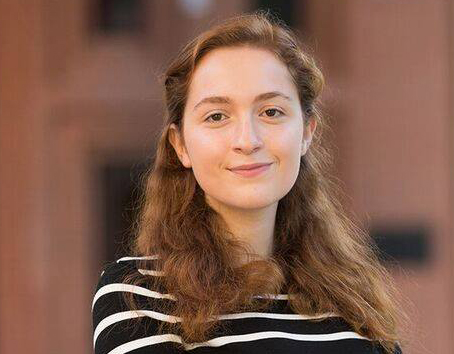Me Too: Stories of Sexual Violence in the Visual History Archive

About four years ago, still in high school and bussing tables at my first job, I found out that management hands you bigger tips at the end of the night when they see the big table in the corner harass you. Because those tips, they said, were left for you. What are you going to question that for?
This year, I live far from the university gym and prefer to run there as the warm up to a bigger workout. When it is muggy out at night, you can’t wear shorts, you can’t wear leggings to do that on my side of campus unless you’re looking to get grabbed at a red light or have a friend with you. It’s less than a mile run.
I don’t think about these instances or others too often or too seriously, not affected by them in the long-term in a way that’s all that noticeable. Thinking of them, communicating them to anyone else feels too much like complaining about a universal thing, trusting my own lapsed judgement over the severity of something that I internalize as not a huge deal, something that just happens and is easy enough to get over.
Except, I am a tough, moderately educated, feminist woman with enough of a platform and opportunity to speak up if I want to and in working with USC Shoah Foundation, am realizing that I don’t really have the right to stay quiet anymore.
My experiences are not my own, but shared– the experiences of all of the women and men who’ve shared their own stories using #MeToo; the ones raising their hands more quietly, independently; the thousands of testimonies granted to the Institute wherein women describe their own assaults, decades later, affected in the long-term by the kind of violence that comes from hatred and a lack of respect.
It’s not something restricted to now; instead, prevalent in hundreds of testimonies, both in USC Shoah Foundation’s Visual History Archive and across mediums in the wake of Alyssa Milano’s campaign on Twitter, inspired by activist Tarana Burke. For every one instance that is shared, there are more, unreported, invalidated, indefinitely and systematically silenced by a non-disclosure agreement, the anxiety of disbelief and the shame attached to these moments.
This is a kind of hatred experienced by all women and many men, and is transferrable to any kind of group. I am adding my voice to the voices that have come before me– of Thea Aschkenase, a Holocaust survivor who lived in fear of assault by her liberators; of Irene Binzer, a survivor was repeatedly assaulted in a prison camp with her mother; of the other witnesses whose testimonies are clipped together above, and the voices that will certainly come after me.
Together, we are Stronger Than Hate.
Like this article? Get our e-newsletter.
Be the first to learn about new articles and personal stories like the one you've just read.